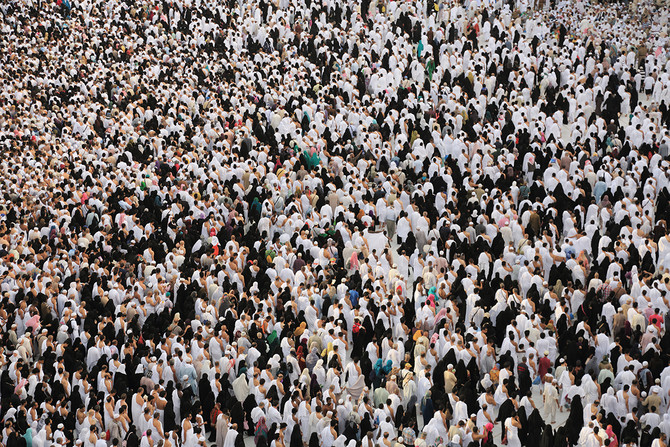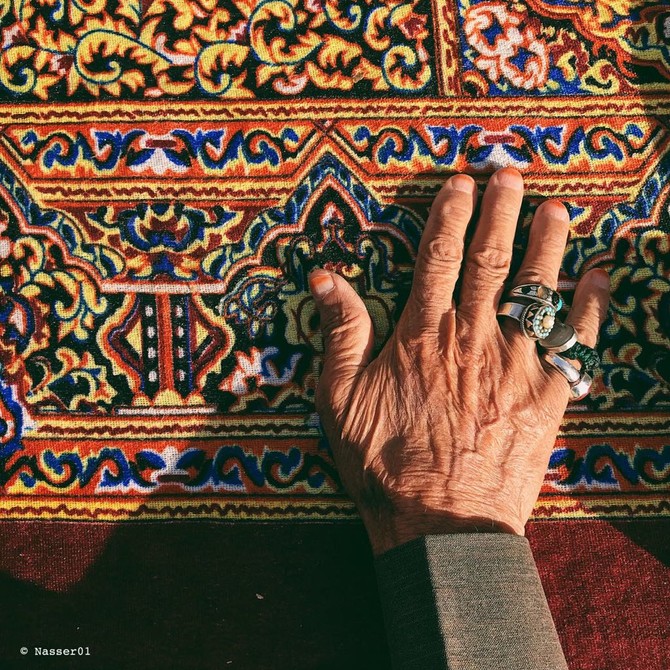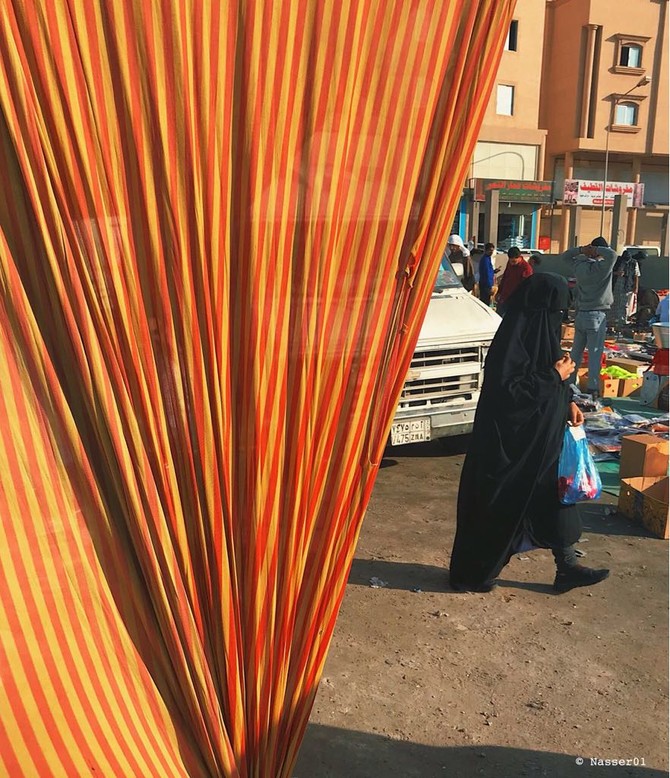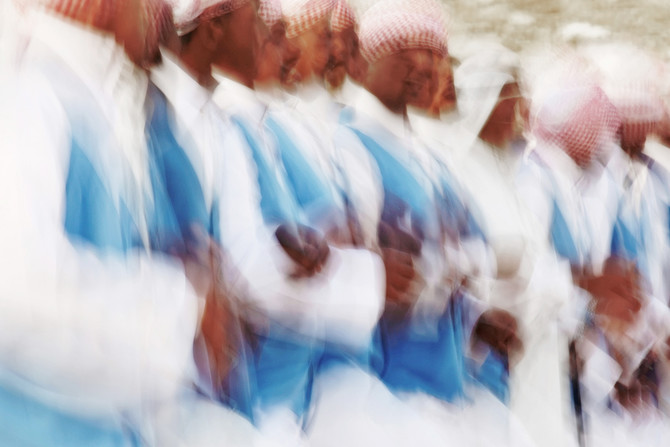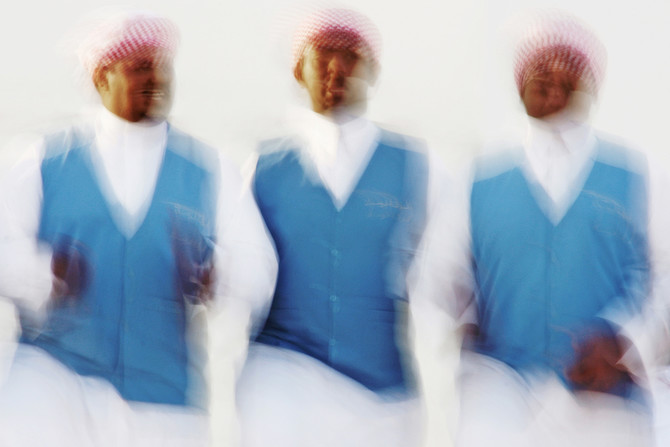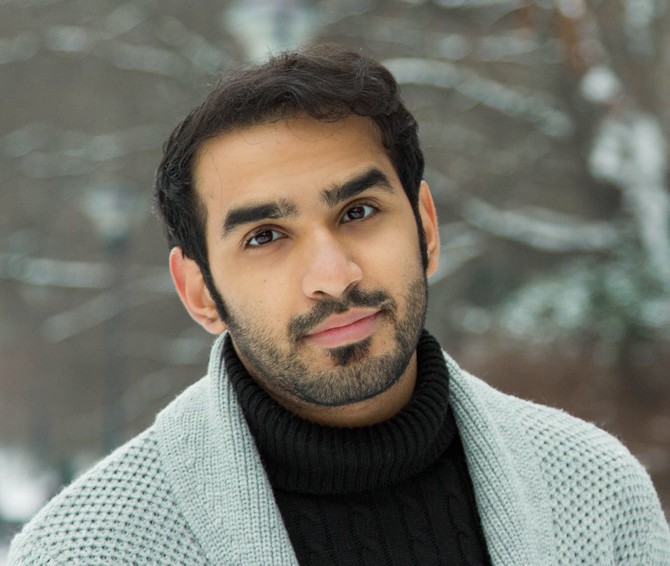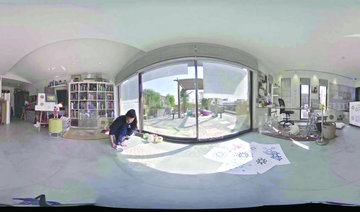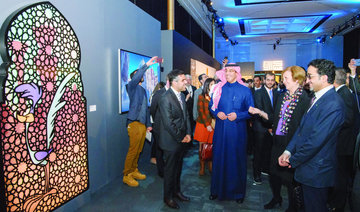JEDDAH: Saudi Art Days, a three-day event honoring Saudi visual arts and culture, kicked off at Linwood Dunn Theater in Los Angeles on Monday. It coincides with Crown Prince Mohammed bin Salman’s visit to the US.
The event is one of the initiatives of the King Abdul Aziz Center for World Culture (Ithra), which aims to support Saudi creative young artists and enable them to spread their work locally and internationally to achieve the Kingdom’s Vision 2030.
During a panel discussion on Monday, Saudi director Mohamed Al-Salman shed light on the Saudi film industry. Among the speakers were Film Independent President Josh Welsh and Hollywood director Andy Tennant, who is known for romantic and action comedies such as “Hitch,” “Sweet Home Alabama” and “The Bounty Hunter.”
On Tuesday’s panel, screenwriter Shauna Cross, known for the sport-comedy drama “Whip It” and the teen romantic drama “If I Stay,” will appear. And on Wednesday, Saudi directors Mohamed Al-Salman and Shahad Ameen, known for her short film “Eye and Mermaid,” will talk about their film-directing experiences.
In addition, discussions at each evening’s screening will bring Saudi filmmakers into dialogue with notable directors and writers, as well as American and Saudi film critics, to discuss storytelling and the future of filmmaking in Saudi Arabia, which is swiftly opening to diverse, innovative and uniquely Saudi visual narratives, creating a new generation of young filmmakers who are passionate about sharing their stories.
Presented in association with the Saudi Films Festival, the event program features 13 Saudi films from this new generation, some of which have already won film festival awards. Included is "Bilal: A New Breed of Hero" by renowned Saudi director and producer Ayman Jamal.
Mohamed Al-Salman, director of “Tongue,” told Arab News that the event is simply a bridge that connects the Kingdom to the whole world. “Our true culture and uniqueness can now be seen through this window to the whole world,” he said.
Al-Salman stressed the importance of such events, especially with the recent decision allowing cinema houses to open in the Kingdom. “The future of the Saudi film industry is brighter than ever and everything needed in the industry is being satisfactorily made available. The number of Saudi young men and women interested in cinema crafts is increasing,” Al Salman said.
He added that the decision to give the green light to run cinema houses was an “inauguration” of the industry in the Kingdom. “What is left is that we should not stop,” he said.
Asked by Arab News how he sees Westerners’ enthusiasm about Saudi works, Al-Salman said that cinema audiences in nearly all film festivals he has participated in would love to watch Saudi films because they tell those people stories about Saudi society they have not heard about before.
Nasir Al-Nasir, a participating photographer, valued the efforts that Crown Prince Mohammed bin Salman is making to strengthen the US and the Kingdom’s ties on various levels, particularly cultural ones.
He said his smartphone has helped him in capturing wonderful moments from Saudi daily life. “This event has attracted many American citizens and residents to come and see our culture from the perspective of Saudi artists. Many visitors have expressed their interest in visiting Saudi Arabia one day,” Al-Nasir told Arab News.
He added that he is participating with a number of photographs that mirror Saudi cultural aspects, such as nomads’ life and traditional souqs. “In the Kingdom, a photographer finds no difficulty in coming up with impressive, eye-catching shots, thanks to the diverse nature of the country and the richness of its culture,” he added.
The director of programs at Ithra, Ali Al-Mutairi, pointed out that Ithra’s culture and arts programming aims to build local capacity across all of the arts in Saudi Arabia, and one of its major focal points is the rapidly growing Saudi film industry.
“For Saudi Art Days, Ithra is producing an immersive experience in this new visual culture through both photographs by some of the top young Saudi photographers, and films by leading young Saudi filmmakers, including also interactive panel sessions with renowned American filmmakers to create dialogues and opportunities for knowledge exchange,” Al-Mutairi said.
He said that it is all part of Ithra’s vision of support for a youthful Saudi Arabia: A vision that brings cultures together and bridges east and west in ways that create opportunities for everyone from the world’s most talented film industry companies in the US to the youngest aspiring visual artists in Saudi Arabia.
“We have a new generation of Saudi tastemakers and influencers, devoted to capturing the magic and spirit of our country through film and photography,” said Al-Mutairi.
He explained that the Kingdom of Colors art exhibition and Saudi Art Days will showcase the story of Saudi Arabia and provide guests with a unique opportunity to experience a visual art journey through the lenses of Saudi artists in the heart of Hollywood.
“Influential Saudi contemporary photographers will be on hand to discuss the Kingdom of Colors exhibition, promoting shots captured through conventional photography and camera phones to illustrate the many layers, flavors and fabrics of Saudi Arabia," he said, adding that these photos represent the new way that locals see and experience the Kingdom.
Rashid Al-Shashai, an artist who recently took part in a similar event in New York, told Arab News that the day to express “our own culture” has come.
“We can now convey a true picture of young people, their aspirations, wishes, and even fears,” he said, adding that Western media have long been tackling our issues in a way that included many misrepresentations.


